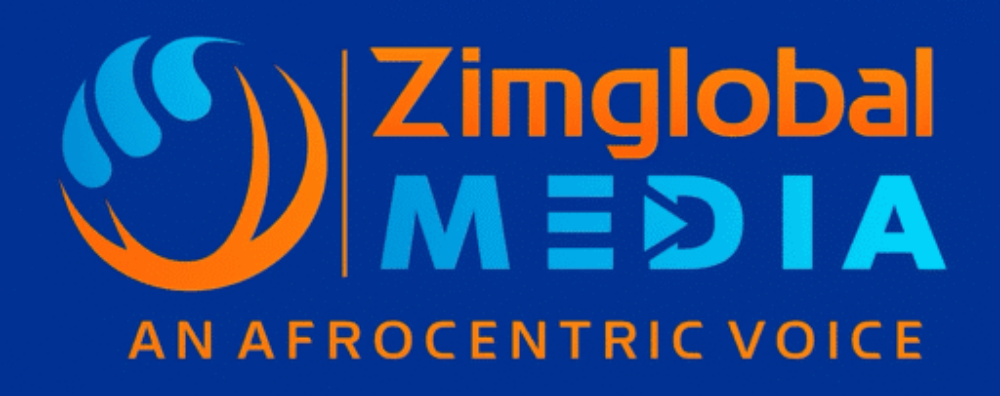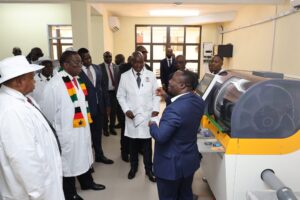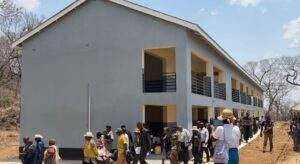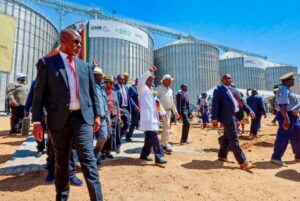29th Post Cabinet Media Briefing Highlights Key National Developments
4 min read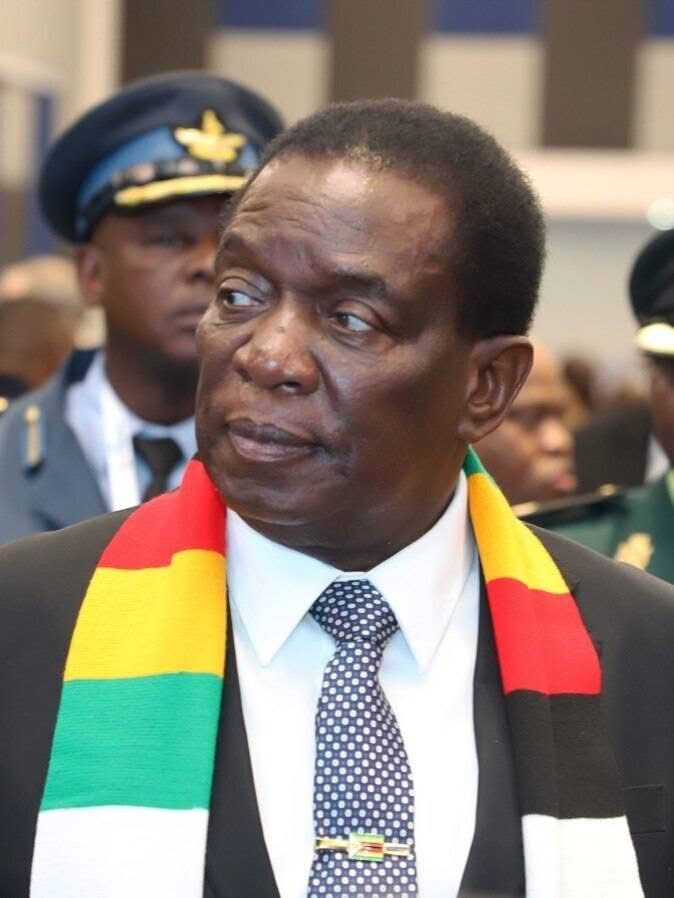
Harare – In a significant Cabinet meeting chaired by His Excellency, President Dr. E.D. Mnangagwa, the Zimbabwean government unveiled a series of initiatives aimed at fostering development, enhancing local governance, and promoting economic empowerment.
The twenty-ninth Cabinet briefing, held yesterday, September 30, 2025, outlined various projects and strategies that resonate with the government’s commitment to inclusive growth and development across the nation.
At the forefront of the discussions was the implementation of the Binga Development Initiative.
This ambitious project, envisioned by President Mnangagwa, focuses on transformative livelihood projects for the Binga District, emphasizing the mantra of “Leaving No one and No Place Behind.”
The ongoing construction of the Binga-Siakobvu-Karoi road is set to reduce travel distance from Harare to Binga by 300 kilometers, significantly improving accessibility to the region.
The initiative has seen the drilling of 74 boreholes and the installation of 16 solarized boreholes to provide potable water.
Additionally, the construction of new clinics and the rehabilitation of existing health facilities aim to enhance healthcare access in the district.
With the establishment of the Binga School of Nursing and the construction of new government boarding schools, the initiative aims to bolster educational opportunities for local communities.
The resuscitation of Muchesu Mine has attracted international investment, unlocking employment opportunities and fostering economic growth in Binga.
These developments illustrate the government’s commitment to addressing the needs of underserved communities and enhancing the quality of life for residents in the Binga District.
The Cabinet also approved the Implementation of the Community Share Ownership Trust Framework, which aims to bolster rural industrialization and ensure that local communities benefit from resource extraction in their areas.
This framework is a critical component of the government’s strategy to promote economic empowerment, especially among marginalized groups.
The initiative will support the establishment of Community Economic Empowerment Trusts (CEETs) to attract investments in agro-processing and create job opportunities.
A key focus of this framework is revenue-sharing, ensuring that communities receive fair benefits from natural resource exploitation.
Recognizing the importance of local participation in key economic sectors, the Cabinet discussed the Reserved Sectors Implementation Framework.
This framework outlines exclusive reservations for local citizens in various sectors, including artisanal mining, beauty salons, and transportation services.
By prioritizing local citizens in these sectors, the government aims to create a more equitable economic landscape, ensuring that Zimbabweans have access to opportunities that were previously dominated by foreign entities.
The Cabinet also emphasized the need for a transitional framework to support existing businesses while implementing these changes.
In a bid to enhance the country’s skill development ecosystem, the Cabinet approved the Zimbabwe Global Skills Partnership Programme.
This initiative is designed to address critical skill shortages in areas such as Science, Technology, Engineering, Health, and Agriculture.
The programme will facilitate international partnerships, providing Zimbabwean professionals with opportunities for foreign training and exposure to advanced technologies.
By fostering skill transfer and enhancing the qualifications of local workers, the government aims to alleviate unemployment and promote national development.
Another crucial topic on the agenda was the approval of the Principles for the Zimbabwe Border Management Authority Bill.
This bill seeks to establish a dedicated management authority to streamline border management processes and enhance coordination among various government agencies.
By addressing inefficiencies in border operations, the government aims to improve the overall functioning of border entry and exit processes, thereby facilitating trade and enhancing security.
The Cabinet also reviewed reports on significant international engagements.
Notably, the report on the 80th United Nations General Assembly (UNGA) highlighted Zimbabwe’s commitment to multilateral cooperation and its candidacy for a non-permanent seat on the UN Security Council for the term 2027 to 2028.
President Mnangagwa, in his address at the UNGA, underscored the need for reform in the UN Security Council and the international financial architecture, emphasizing the importance of promoting peace, human rights, and sustainable development.
Additionally, Zimbabwe’s participation in the 28th Universal Postal Union Congress in Dubai was marked by significant achievements, including securing a vice-chair position in the General Policy and Management Committee.
This recognition positions Zimbabwe as a key player in modernizing postal services on the continent.
The twenty-ninth Cabinet briefing underscored the Zimbabwean government’s commitment to fostering inclusive development and economic empowerment.
Through initiatives like the Binga Development Initiative and the Community Share Ownership Trust Framework, the government aims to address the needs of marginalized communities and promote local participation in economic activities.
As Zimbabwe continues to navigate its development journey, these strategic initiatives reflect a holistic approach to governance, aimed at building a resilient and prosperous nation for all its citizens.
The government’s focus on infrastructure development, skill enhancement, and inclusive economic policies is poised to create a brighter future for Zimbabweans, ensuring that no one is left behind.
